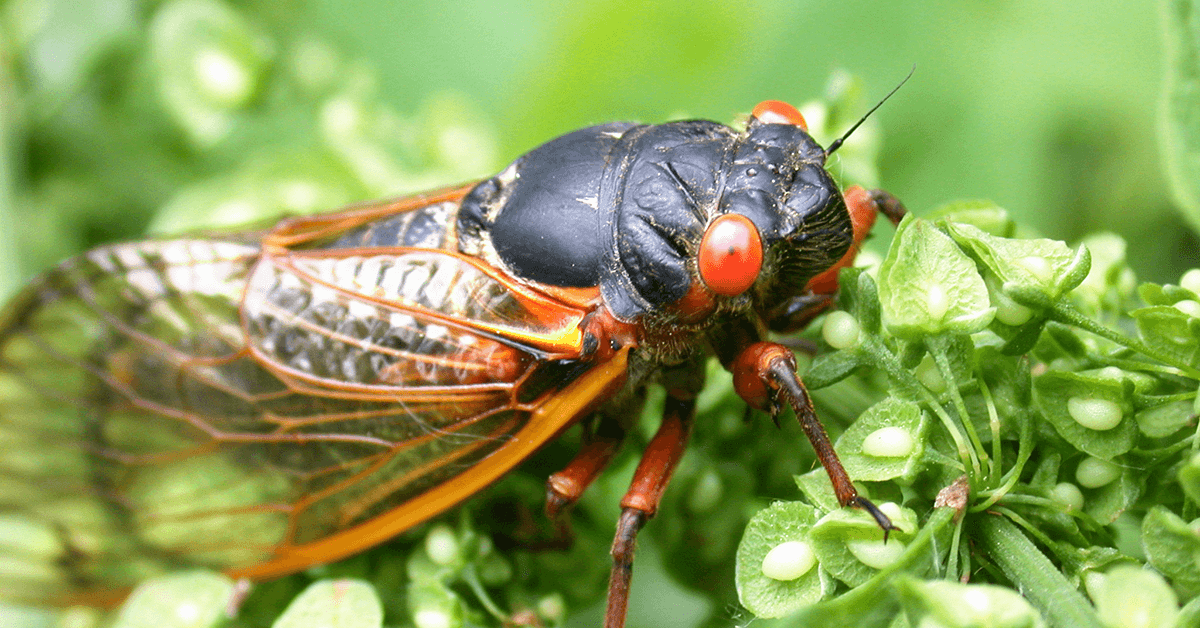
Cicadas: What You Can Do to Protect Your Home and Yard
Brood X may sound like a blockbuster action film, but it actually refers to the billions of cicadas that have emerged with various levels of intensity throughout the eastern United States.
This brood of cicadas, according to CBS News, “is the most widespread and prolific of the known generations.”
Here are the steps you can take to protect your home and garden from these insects.
Cicadas follow a 17-year life cycle that many believe was developed as an evolutionary strategy to avoid cold weather and predators. You can also thank evolution for the amount of cicadas that emerge during each cycle. These slow and defenseless creatures use sheer numbers to ensure at least some of the brood survives the predatory threats awaiting them above ground.
While it can be eerie to watch these insects seep out of the ground and scale up your trees, bushes, and home, they rarely cause much damage and actually do a little good along the way. Their decomposing bodies provide nourishment to the soil and you can consider their burrow holes in your lawn free aeration. Animals like birds, opossums, and raccoons will also benefit from the additional, easily accessible food source.
Despite all the good cicadas do they are still a nuisance to humans and for some less mature plants they can pose a more serious threat.
Since cicadas rely on woody stemmed plants to breed, they have little interest in your home and outdoor furniture. But these fumbling insects will occasionally make their way inside and onto your outdoor living spaces. Here’s what you can do to prevent that:
- Patch your screens. Cicadas are harmless and they are unlikely to intentionally try to come inside but they can be noisy and just plain gross. Make sure any open windows or doors are sealed with a well-maintained screen.
- Close the flue. Again, cicadas aren’t actively trying to get into your house, but they may find their way to the top of your chimney and fall in. Make sure your flue is closed to avoid any unwanted visitors.
- Cover your patio furniture, pool, and hot tub. Nicholas Martin, an entomologist notes, “Cicadas drink tree xylem (also known as sap), which contains amino acids and minerals. In simple words, they need to pee after that.” You can protect your patio furniture from “cicada rain” by tightly covering it when not in use.
Your pool or hot tub, just like your home, are of little interest to cicadas. However, they will occasionally fall in there and once they’re in they’ll be unable to get out. You can avoid this messy scene by covering your pool and hot tub during the brood’s emergence.
You don’t need to worry about the vegetable garden you planted when you started homesteading at the onset of COVID-19, but you should take steps to protect saplings, ornamental shrubs, and other plants with woody stems and branches. Here’s what you can do to protect your vulnerable plants:
- Create a physical barrier. You should wrap saplings under four years of age with netting. The holes should be 1cm or smaller to prevent the bugs from sneaking through. Tie the netting securely around the tree’s trunk so they can’t crawl up. And make sure the netting is snug but not so tight that the branches are bent.
- Keep a well-manicured lawn. Some believe a well-maintained lawn with minimal soil patches will help prevent cicadas from burrowing at the end of the season. This can reduce the number of creepy crawlies that emerge during the next cycle.
- Repair the damage once they’re gone. At the end of the cycle, you should water your trees and shrubs (about 1 inch of water per week). You can also add mulch around the base of these plants to help retain moisture in the soil.
- Avoid using chemicals. Pesticides, bleach, and essential oils will do more harm than good. The amount you’d have to use to eliminate the sheer quantity of cicadas would harm the plant and the other animals and insects in the area.
Hunker down, protect your vulnerable plants, and listen to the noisy but awe-inspiring show.
Time to Focus on Affordable Housing
Taxes on real estate are not the answer. Sign the petition calling on Congress to address our country’s housing shortage.





